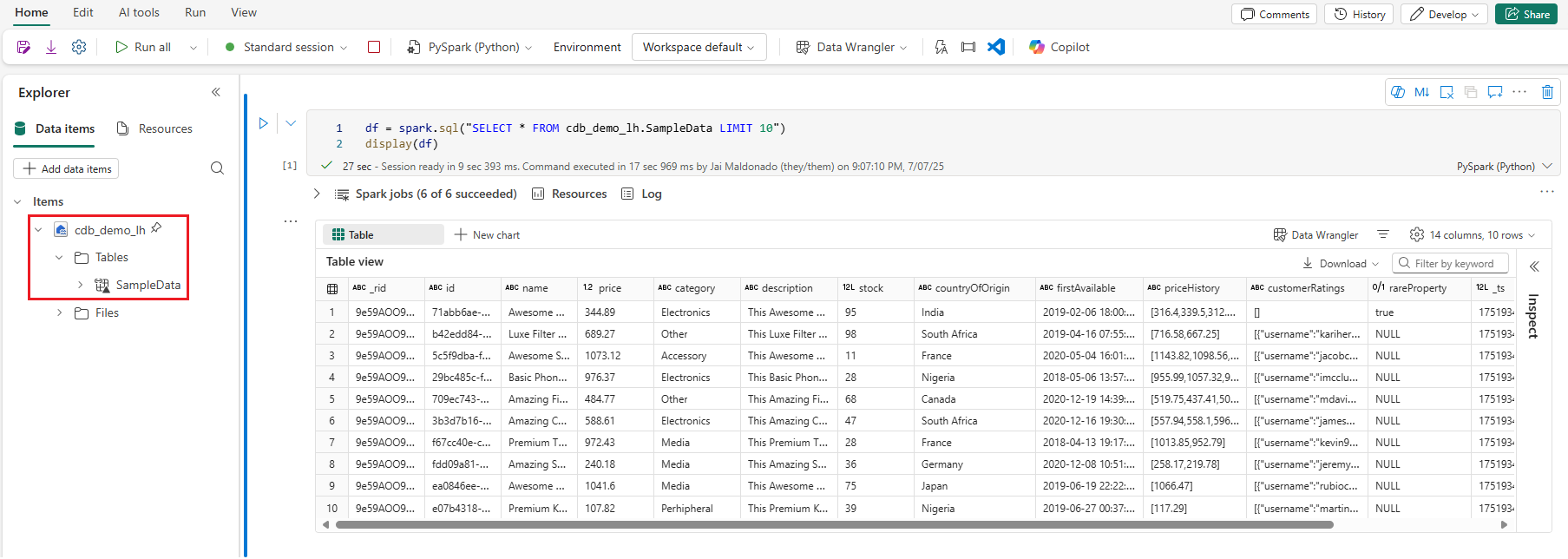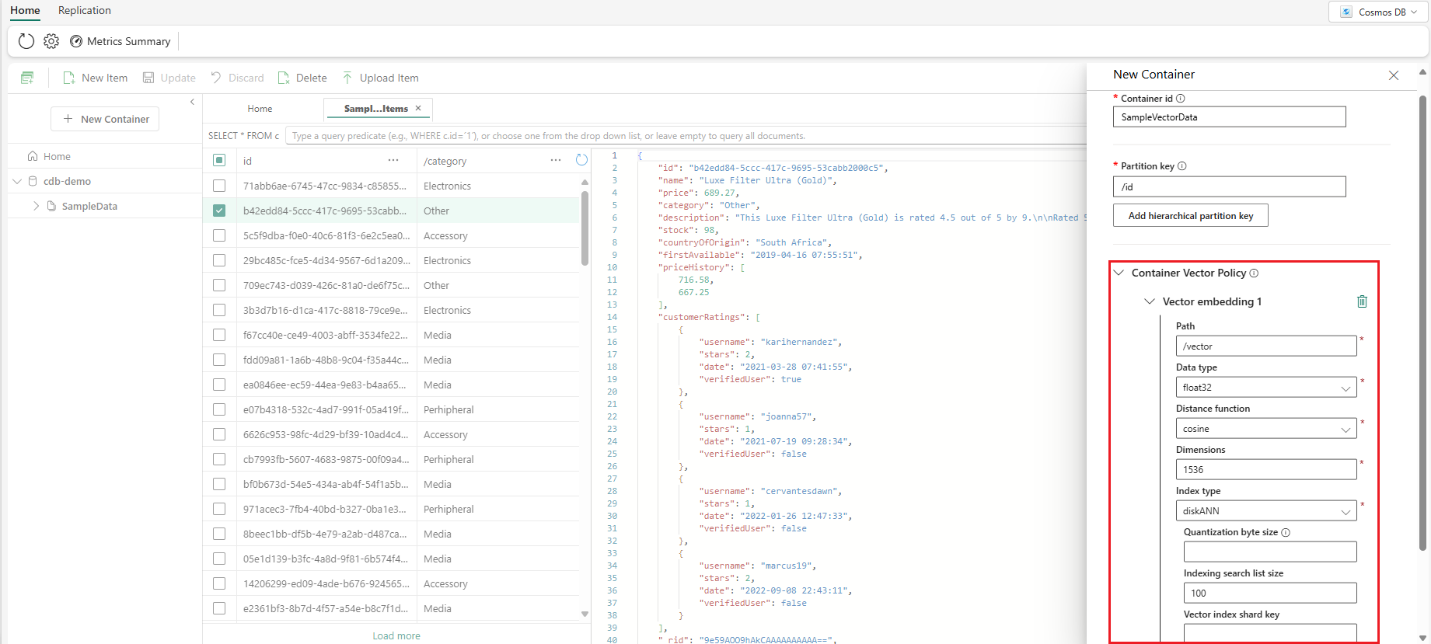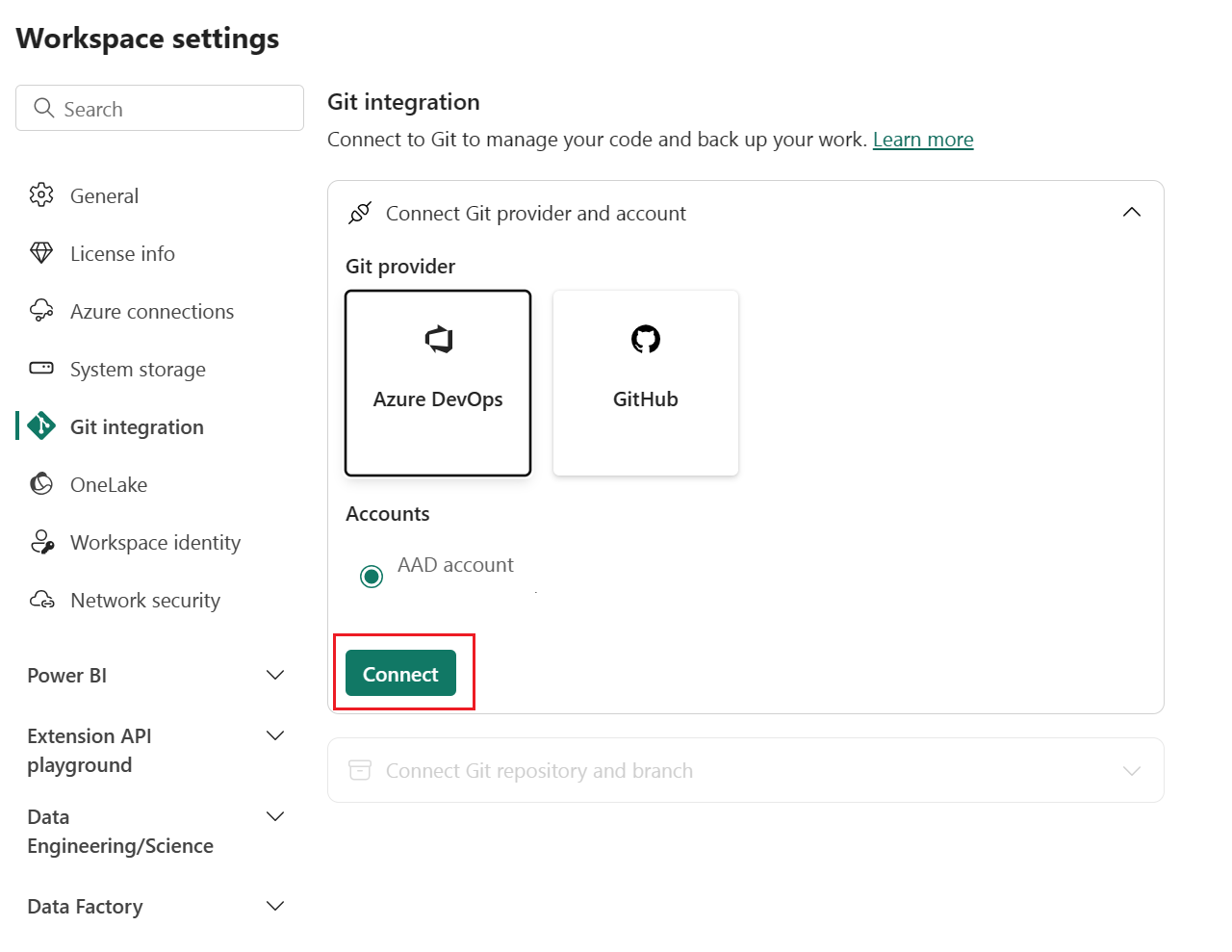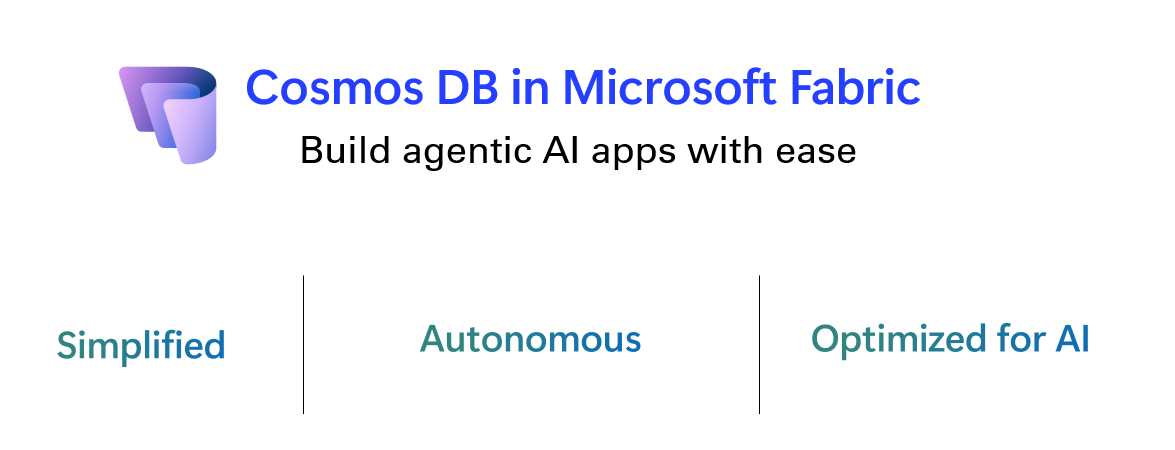We’re excited to unveil the open Public Preview of Cosmos DB in Microsoft Fabric, now available to all users! Since our initial announcement at Microsoft Build 2025, we’ve introduced an array of powerful new features to enhance your data workflows.

With this release, you can seamlessly access and analyze your operational data across the Fabric ecosystem. Leverage real-time intelligence, Copilot-powered Power BI, and SQL queries in OneLake—all without the hassle of managing multiple services. We’re committed to expanding integration support to help you get even more value from your data in Fabric.
Why Cosmos DB in Fabric?
Cosmos DB in Fabric brings the power of Azure Cosmos DB to the Fabric platform—combining high availability, dynamic scaling, and AI-optimized performance in a fully managed experience. Cosmos DB in Fabric is powered by the same Azure Cosmos DB service, now natively integrated into Fabric.
You can now store semi-structured NoSQL data in Cosmos DB in Fabric, alongside your relational data in SQL databases, enabling a unified data platform for your applications. This positions Fabric as an end-to-end data foundation that supports everything from modern app development to business intelligence all in one environment.
Watch this demo from Microsoft Build 2025
This demo walks through building a chat-enabled storefront, storing NoSQL data, generating recommendations, and applying AI insights—all in one unified platform.
Example Use Cases
Scenario: Smart Knowledge Assistant with Cosmos DB in Fabric
A product team builds an internal knowledge assistant that surfaces relevant content such as manuals, support documents, and chat logs stored as JSON in Cosmos DB in Fabric. Using vector indexing, the assistant delivers semantically matched results to user queries. Fast deployment, replicated data in OneLake, and built-in analytics enable the team to iterate quickly and continuously refine the content.
Scenario: Real-Time Customer Profiles with Cosmos DB in Fabric
A financial services team uses Cosmos DB in Fabric to manage a real-time customer profile store that includes transaction history, preferences, and risk scores. Leveraging Cosmos DB’s low-latency access and flexible document model, their application delivers personalized offers and detects anomalies in real time. Additionally, the team uses replicated data stored in OneLake for advanced analysis, enabling continuous improvement of their services.
New Capabilities
Automatic Mirroring to OneLake
Automatic mirroring for Cosmos DB in Fabric databases replicates your operational data to OneLake in near real-time using the open-source Delta format. As soon as you create a Cosmos DB artifact in your Fabric workspace, Fabric begins replication—no manual steps required. It continuously mirrors all inserts, updates, and deletes, so your data stays current and accessible across the Fabric ecosystem for analytics and reporting.
With OLTP data in Delta format in OneLake, you can perform real-time analytics using T-SQL, Spark, notebooks, Copilot-powered Power BI, and advanced data science and machine learning workflows.

Use the SQL analytics endpoint to quickly run SQL queries on your data and perform cross-source queries across your unified data estate.

Create Power BI reports with ease and leverage integrated Copilot features.

Utilize your OneLake shortcut in a Lakehouse and explore your data with Spark notebooks.
Vector and Full-Text Search
Azure Cosmos DB in Microsoft Fabric now offers efficient vector indexing and search as well as full-text indexing and search.

Vector search enables you to execute advanced similarity searches using vector embeddings, allowing you to retrieve results based on the meaning and context of your data rather than simple keyword matches. To deliver efficient vector search at any scale, Cosmos DB provides multiple vector indexing options, including Quantized Flat for smaller workloads and Microsoft’s DiskANN index for large-scale, high-performance scenarios.
Full-text search enables fast, flexible querying across your textual data using advanced techniques. It supports more than basic keyword matching by applying linguistic analysis, ranking, and pattern recognition—helping you quickly surface the most relevant results, even in large or unstructured datasets.
To learn more, please visit our documentation also covering Indexing Vector Data.
CI/CD Support
To streamline development workflows and promote consistency across environments, Cosmos DB in Fabric supports robust CI/CD capabilities through deployment pipelines and Git integration.
Deployment Pipelines
Deployment pipelines make it easy to move artifacts like datasets, reports, or semantic models from one workspace (e.g. development) to another (e.g. test or production). The pipeline automatically compares artifacts between environments and deploys only what’s new or changed.

To learn more, visit our documentation Introduction to deployment pipelines.
Git Integration
Git integration brings seamless version control and team collaboration to your Fabric workspace. By connecting to a Git repository, you can manage Cosmos DB artifacts with familiar workflows—pushing updates, tracking changes, and collaborating through pull requests and branching strategies.
This integration also simplifies environment replication and team onboarding. You can import artifacts directly from Git, ensuring consistent setups across projects and enabling new team members to get up and running quickly.

To learn more, visit our documentation Introduction to Git integration.
Monitoring Your Cosmos DB Artifact
Monitoring is key to understanding how your Cosmos DB in Fabric workloads are performing and scaling over time. To support this, each database includes a Metrics Summary panel that provides a quick snapshot of key usage indicators. These metrics are updated regularly, though it may take a few minutes for them to appear after setup.

For more advanced monitoring and capacity planning, you can also install the Microsoft Fabric Capacity Metrics App, which provides broader insights across your Fabric environment.

To get started, see Install the Microsoft Fabric capacity metrics app.
Unified Billing
Since Cosmos DB is a native item in Fabric, it utilizes Fabric capacity units like other Fabric workloads. For more information on billing, please visit our documentation Cosmos DB in Fabric Billing and Utilization Reporting.
Get Started Today
Free trial
Get started for free today with a Fabric free trial. If you are already using Fabric, contact your Tenant Admin to get Cosmos DB in Fabric enabled.
Cosmos DB in Fabric is simple, autonomous and secure, and optimized for AI. We encourage you to try it today and see how you can build new AI apps faster and easier than ever!
Learning
We have multiple resources to help you, and your teams swiftly ramp up on Fabric Databases:
- Explore the documentation and build with our end-to-end tutorials
- Get the latest product news here on the Fabric updates blog
Feedback
We are taking all your feedback to make sure we invest in the right areas to help you build new enterprise AI apps faster and easier than ever. Please leverage the Fabric community forums to ask questions, share feedback, and contribute and vote for product improvement ideas.

About Azure Cosmos DB
Azure Cosmos DB is a fully managed and serverless distributed database for modern app development, with SLA-backed speed and availability, automatic and instant scalability, and support for open-source PostgreSQL, MongoDB, and Apache Cassandra. To stay in the loop on Azure Cosmos DB updates, follow us on X, YouTube, and LinkedIn.
To easily build your first database, watch our Get Started videos on YouTube and explore ways to dev/test free.

0 comments